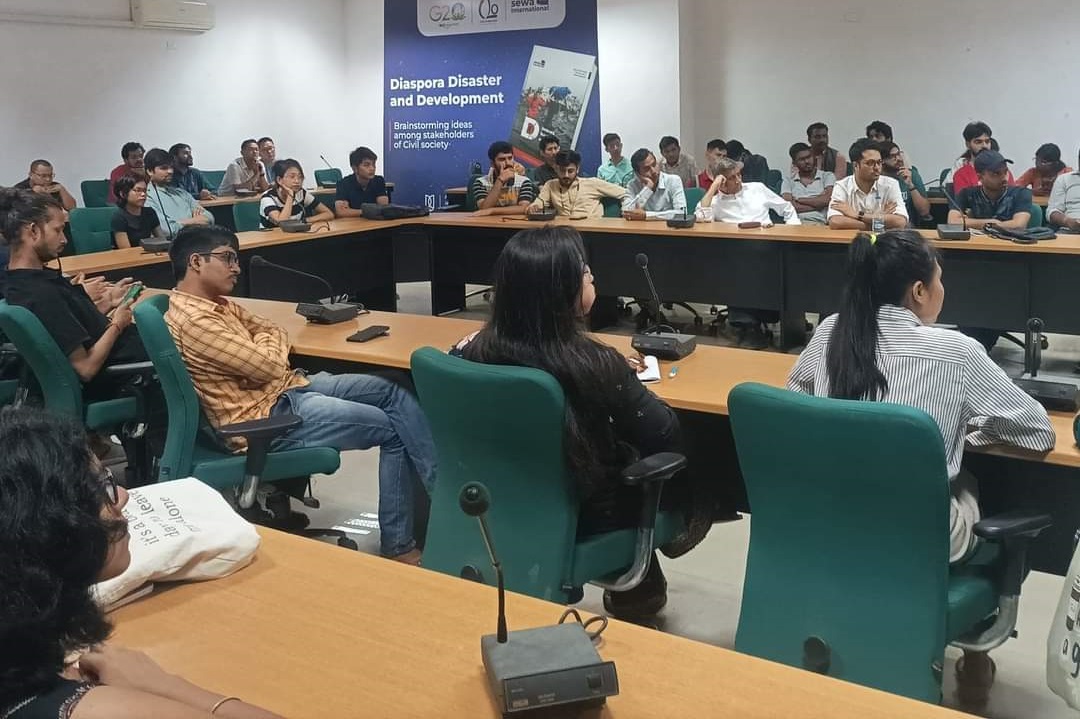
A public talk on the topic, "Intellectual Discourses and Contours of Peace and Conflict in Manipur" was organized by the Meiteis Students Jawaharlal Nehru University, New Delhi, on July 29 at the School of International Studies, JNU campus.
A press release issued by the Meitei Students of Jawaharlal Nehru University on Sunday stated that the purpose of the talk was to throw light on the role of intellectuals, particularly public intellectuals, civil society leaders and the media in the context of present ethnic conflict and violence in Manipur.
The talk featured two panelists- Rami Desai, Founder of The North-East Policy Institute, and Dr. Bidhan Laishram, Associate Professor, Zakir Hussain College, University of Delhi.
In the public discourses, Rami Desai approached the topic from a policy perspective and argued that the current conflict has its genesis during the colonial period, with the policies of British administration introducing false categories which led to artificial divide and isolation of communities from one another. Rami Desai also challenged the colonial accounts which depicted communities in the North-east as backward and emphasized the rich cultural heritages of those communities and the cultural imprints left behind by exchanges between Indian sub-continent and south east Asia.
The press statement stated that Rami also dismissed the argument that the current ethnic conflict between Kukis and Meiteis in Manipur is due to the High Court order directing the state government to recommend inclusion of Meiteis in the ST list as dubious.
According to her, it is due to prolonged emotional discontent, drawing attention to porous international boundaries, illegal immigration and lack of media attention to the North-east.
Professor Bidhan Laishram provided theoretical insights into the current crisis in Manipur while beginning by referring to the work of Professor Gangmumei Kamei that Manipur is a historically evolved state with fairly stable territorial boundaries, though these boundaries shifted with the fortunes of the kingdom across different historical periods. The professor argued that Manipur is a composite identity with social, economic and cultural relations among different ethnic communities and also stressed the importance of hills in identity, myth and cosmology of Meiteis, thereby emphasizing that identity is territorial.
Bidhan finds the genesis of the current conflict in differing and contesting ideas of nationalism, one based on narrow and exclusive ethnic and religious identity, pitted against a composite, inclusive and multi-cultural Manipuri nationalism.
The talk witnessed participation by not only students of JNU but also by youth, activists and concerned citizens residing in Delhi, belonging to the state of Manipur and many other parts of the country. Lectures were followed by a question and answer session which witnessed passionate engagement and intervention from the audience.
The talk concluded with discussions on the way forward to solve the current crisis in Manipur, wherein Desai stressed the importance of restoring peace, calling out the fringe elements in both the groups and engage in dialogues.
Professor Laishram emphasized the need to stop playing victimhood, self-retrospection by communities and rebuilding trust among the people.
The public talk ended with a one-minute silence mourning for the victims of the ethnic violence.

The Hills Journal
K. Salbung, Churachandpur
Manipur-795128